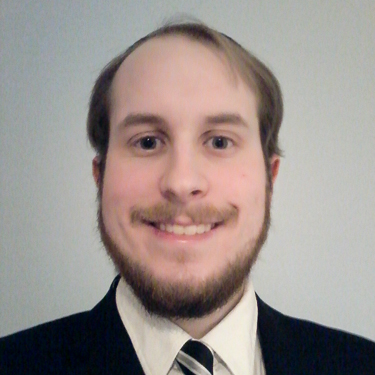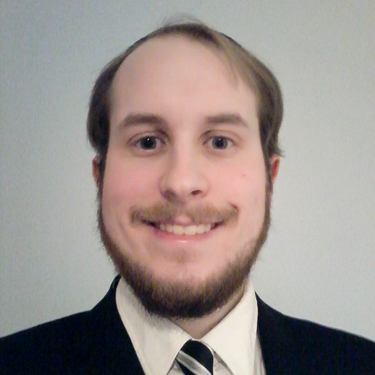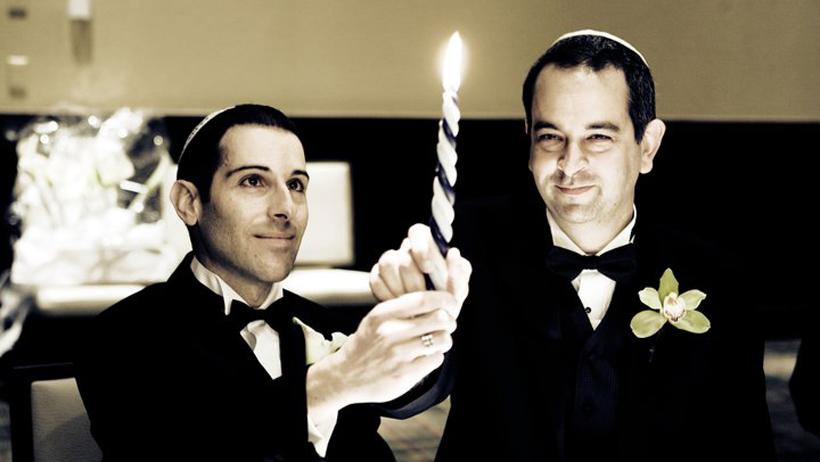My Jewishness isn't as it seems. To the objective eye, I appear and behave Jewishly. I act frum (observant) and am committed to halacha (Jewish law). But I am technically not Jewish. My father is Jewish and my mother is Irish Catholic. I had neither a bris (but was circumcised) nor a bar mitzvah, and I spent my early education years in Catholic school before transferring to public school.
As a young child, I never thought too much about being Jewish or Catholic. My primary exposure was to the holidays. Catholicism only really came up on Easter or Christmas. My mother was disinterested in religion and promoted a more lax variation of these holidays. As for Judaism, that was presented to me through my paternal grandmother and late Aunt Sondra. The two of them would host the holidays either at my grandmother's condo or my aunt's house to bring the relatives together.
Of all the holiday observances, these gatherings stuck out the most. There was a tangible Jewish atmosphere to Aunt Sondra's Yom Kippur break fast, especially. This was due to her homey and inviting demeanor. She was the kind of person who made everyone feel welcome, and it permeated her home as people hungrily gathered to celebrate the culmination of the High Holidays.
Then my parents began their divorce proceedings, during which my mother briefly reconnected with her Catholic roots. She started taking us to church services for a short time and I began my Catholic school education.
The indoctrination that one might expect to take place in a Catholic kindergarten classroom, however, didn't manage to affect me. I had a difficult time concentrating or focusing on what they were teaching (the beginning of my ADD) and I either never really understood the Christian education I was receiving or just did not care. Regardless, it all flew over my head, and eventually my mother's religious phase faded.
We then switched to public school, where my religious identity fell to the wayside, as other parts of my identity fought for attention. My ADD, special ed placement and lack of proper guidance made me develop into something of the class reject. I even had a best friend who was abusive to me during those years, which did a fair amount of damage.
At the end of grade school, everything changed when my father moved across the country. I had tried for years to build a relationship with him, and his leaving made me shut down and become an insufferable recluse for the majority of my teenage years (in addition to the traditional teenage angst that comes to everyone during this time). It wasn't until the end of high school that I came out of my cocoon to try talking to people and develop a social life outside a closed group of friends. By graduation, I had managed to become more bearable and socially curious.
I had not so much as dusted off the notion of being Jewish until my college orientation. All the booths were set up for all the school clubs, and when I came into contact with the Chabad rabbi and Hillel staff, something sparked within me. It remained dormant for most of that first semester, but nevertheless it was there.
Then I saw Hillel advertising for its annual Chanukah party. I thought back to my childhood years celebrating Chanukah with my grandmother and father and decided to go. Attending that party reignited that spark -- I suddenly felt somewhere I belonged, and I wanted to explore it.
Maybe it was Aunt Sondra's spirit or the Divine intervening, but the flame kept growing from there. Throughout my university career, I became involved with Chabad, Hillel International and the JET program. Alongside my classwork, I researched Jewish customs and the holidays. Quickly, it became part of my identity; I craved more of a Jewish lifestyle and experience. By the following January, I was wearing a kippah under a hat, attempting to say the prayers as best I could and trying to celebrate the holidays.
And then, just as I felt my new identity coming together, a bomb dropped. One of the JET rabbis leading the Maimonides program asked to meet with me privately one morning. He told me that I was technically not Jewish because of my parentage -- my mother wasn't Jewish, so I wasn't Jewish.
I felt devastated. I felt the world I belonged to was casting me out because of my parents. I initially tried to brush the notion off, but my other Jewish friends echoed what the rabbi said. Still, I continued to let that pass and believe that I could still be Jewish. I even tried to find instances that would allow the beit din (the Jewish religious court which also handles conversion matters) to tell me what I wanted to hear.
But I also began to look back on my upbringing. My pedigree was just a small part of it. I hadn't attended Hebrew school, become a bar mitzvah or even had a bris. In coming to terms with that, I began accepting that conversion was the only way to not only clear up the dispute with my parentage, but also make up for my lack of a Jewish upbringing.
Pursuing conversion, however, was not so simple. As I finished college and waded my way into the working world, I found myself trapped working in retail part time. In addition to feeling like a slave and working with people I did not like, I could not keep Shabbat; my wages didn't allow me to move out of my mother's house and live a more observant lifestyle.
Yet I tried to at least practice being Jewish whenever I could, keeping kosher as much as possible and observing some of the holidays. I attended Jewish events sponsored by Chabad and by the JET rabbis (and Project 613 upon its founding), and anything just to keep the flame alive and get me through those times of what felt like exile from the community.
Then, on Rosh Hashanah, I had an uplifting experience that drove me to take the leap. I went down to the Chicago Rabbinical Council, presented my case, and was told to find a sponsor. I went to the nearest shul, Congregation Yehuda Moshe, and asked the rabbi if he could sponsor me, to which he agreed.
From that leap, everything seemed to fall into place. I began attending services regularly as well as more events, and rebuilt relationships with my mentors. I also felt more comfortable networking and eventually, at the beginning of this year, a job opening suggested to me by the JET rabbi that turned into a full-time position at a small law firm. I've started to save up money for my future apartment in West Rogers Park - and even enough to give tzedakah -- and pushed the conversion process up to full steam.
Converting has also become less a solitary journey with a couple of onlookers and instead more of a marathon with many giving me support along my path. Whether it is my "nearest" shul (roughly 2 miles from where I live) welcoming me in or inviting me over for Shabbos lunch or the holidays, or the JET rabbis inviting me for Shabbos in West Rogers Park, the support and encouragement is there and making the process lighter on me.
And in that marathon, there also exists others like me. I have come to know other gerim (strangers) in the same boat: children born to non-Jewish mothers in an interfaith (or non-observant) household, some content with their lifestyles, some becoming more observant and even considering conversion themselves.
The feeling of uniqueness has dissolved. I have become just another face in the crowd, and it feels wonderful. Although it's bittersweet to know others have struggled with these decisions because of their parents, the journey suddenly feels less melancholy knowing we travel it together. I am not alone nor going at it alone.










.jpg)



